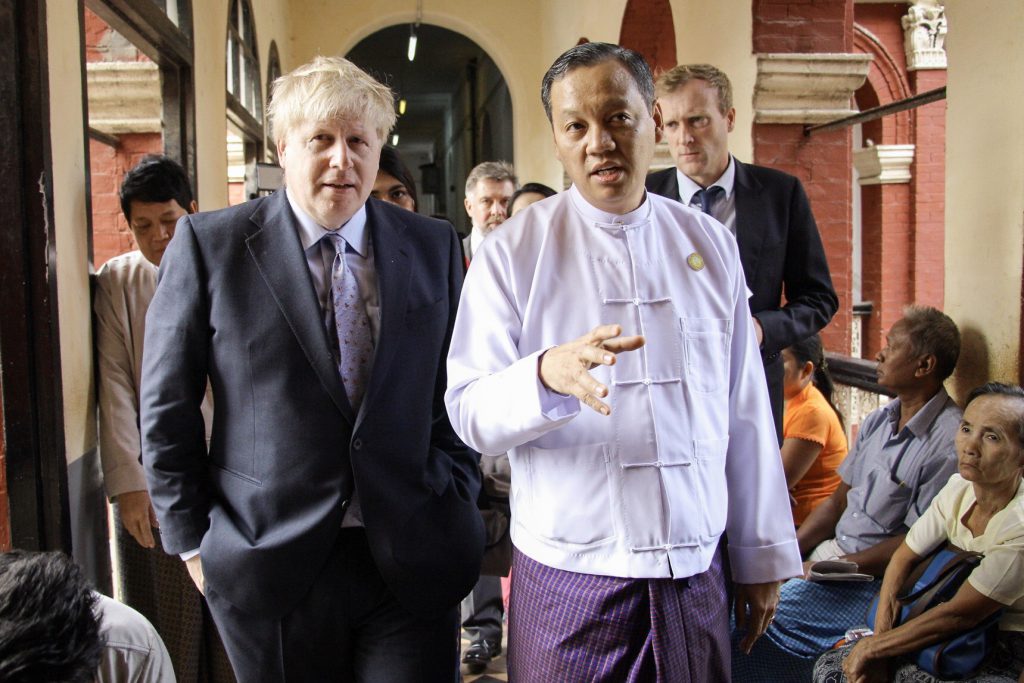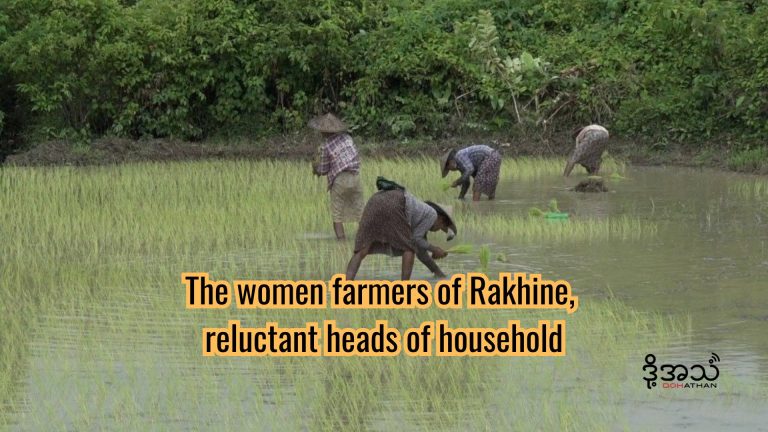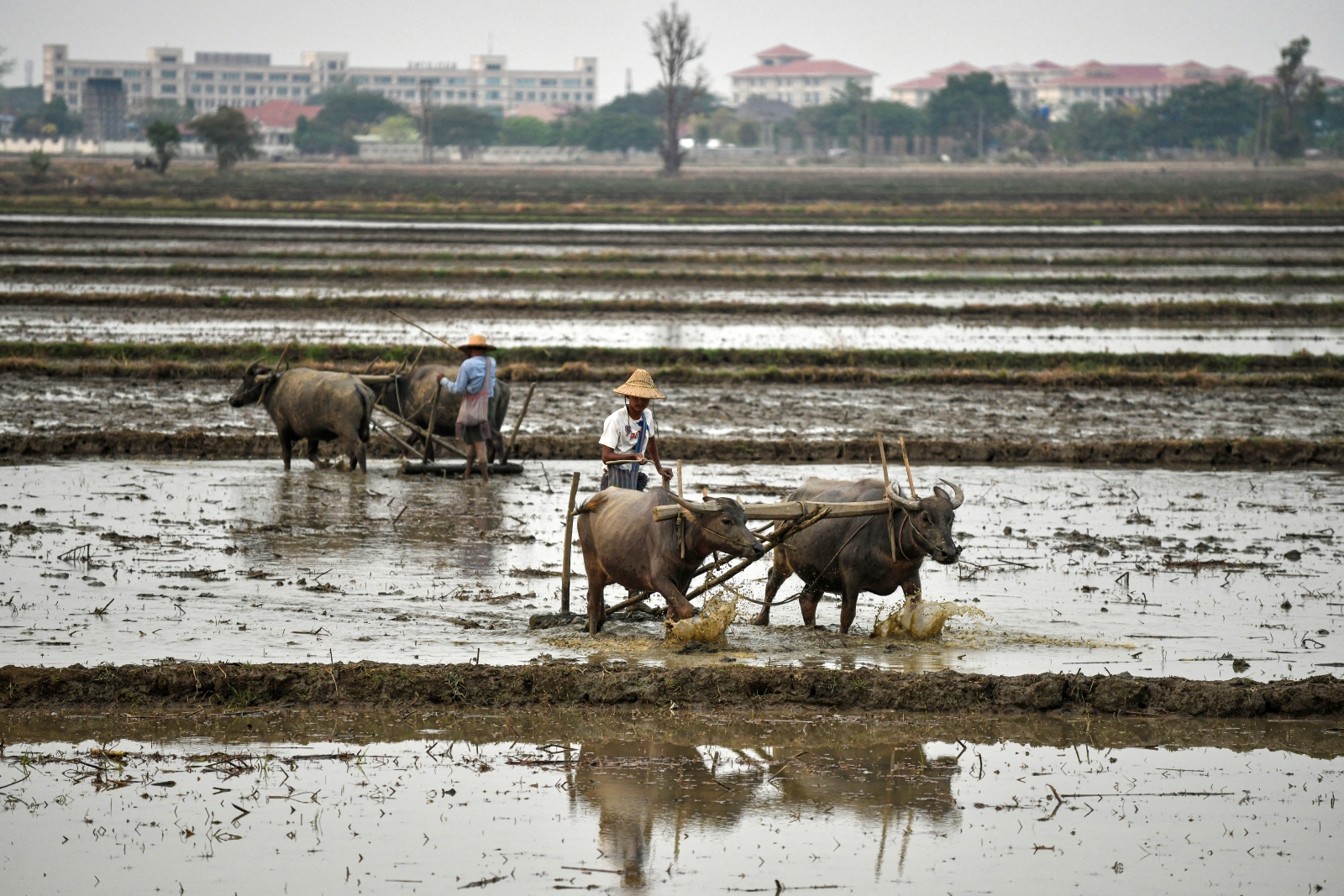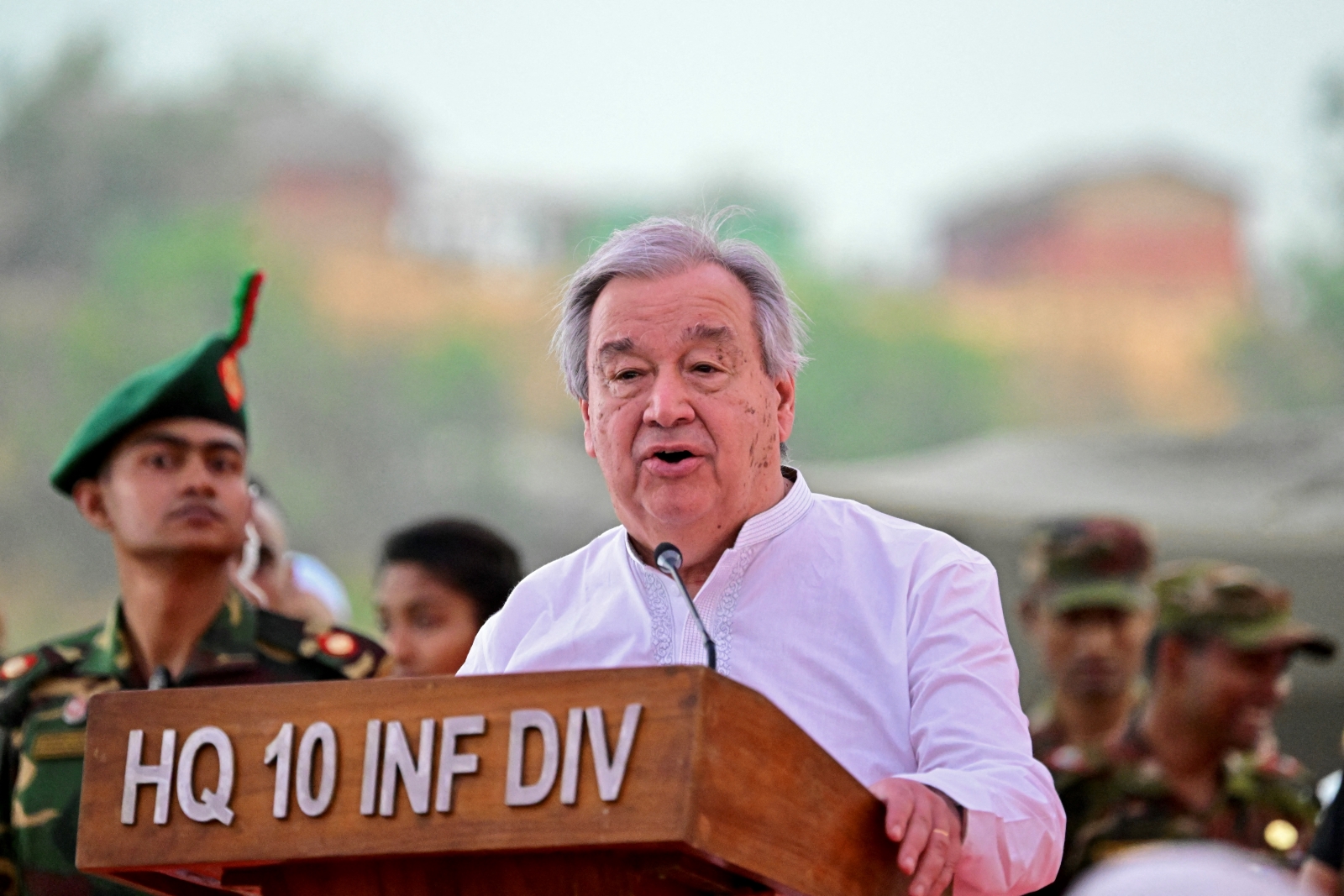The British foreign secretary, Mr Boris Johnson, said talks with State Counsellor Daw Aung San Suu Kyi last week on a range of issues including the situation in Rakhine State were “very positive”, media reports said.
Johnson, the first British foreign minister to visit Myanmar in five years, met Aung San Suu Kyi in Nay Pyi Taw on January 20 at the start of a three-day visit.
In a Twitter post on January 21, Johnson said the pair held “very positive talks on British support for economic reforms, trade and human rights”. The talks had touched on the situation in Rakhine, he said.
Myanmar’s foreign ministry said in a statement they had also discussed the peace process and democratisation.
In the commercial capital on January 21, Johnson visited the Shwedagon Pagoda and Yangon General Hospital, met members of the Rakhine State Advisory Commission and ethnic organisations, and attended a dinner in his honour hosted by the British ambassador, Mr Andrew Patrick.
Johnson referred to Myanmar by its colonial name in a statement released by the British Foreign Office ahead of his visit.
“Burma’s transition to democracy is not yet complete but it is worth reflecting on just how far Burma has come since Aung San Suu Kyi’s National League for Democracy party took office just nine months ago,” he said in the statement.
“The U.K., as a longstanding and long-term friend to Burma, will continue to offer its fullest support. I look forward to seeing Burma continue to develop into a country where there is peace and prosperity for all its people.”
Britain’s Guardian newspaper reported on January 19 that Johnson’s visit was delicate because he would be trying to persuade Aung San Suu Kyi to “end the persecution of religious minorities”, including Rohingya Muslims.
The newspaper quoted Britain’s Foreign Office minister, Mr Alok Sharma, as telling the House of Commons on January 17 that the Tatmadaw was largely responsible for human rights abuses in Rakhine.
“Clearly it is the army that is acting in the areas where there are humanitarian issues,” he said, in comments that came as MPs on all sides called for Johnson to step up the British government’s criticism of the persecution.
They included Sharma’s predecessor as junior foreign minister, Mr Hugo Swire, who urged the government to consider withdrawing any further training for the Tatmadaw.
Sharma said the Ministry of Defence did not provide combat training to the Tatmadaw and its assistance focused on English-language tuition “and policing in a modern democracy”, the Guardian reported.
It also quoted shadow Foreign Office minister Ms Catherine West as saying she was deeply concerned that a “raft of human rights violations have taken place in recent months, including cases of torture, rape and sexual assault, summary executions and the destruction of mosques and homes”.
The government denies allegations of human rights abuses in Rakhine.







